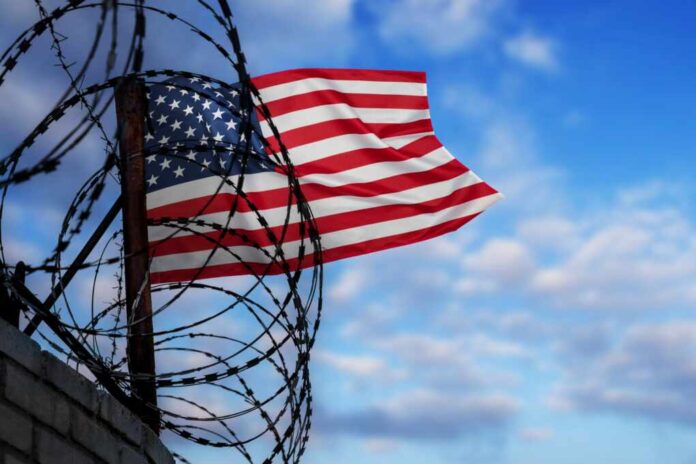
The legal tug-of-war over the deportation and due process rights of Kilmar Abrego Garcia continues to unravel before an intensely divided court.
At a Glance
- Kilmar Abrego Garcia faces another deportation as legal discussions pivot around preventing it.
- The U.S. government mistakenly deported Garcia to El Salvador in 2019.
- He returned to face serious human smuggling charges from a 2022 traffic stop.
- Judge Waverly Crenshaw sanctioned his release, expressing concerns about ICE custody.
Background of the Case
Kilmar Abrego Garcia’s immigration ordeal is attracting attention, serving as a prime example of the Trump administration’s uncompromising stance. After a false deportation to El Salvador in 2019 labeled as an “administrative error,” Garcia returned under house arrest while facing a prosecution for human smuggling. The charges stem from a 2022 traffic incident, yet not enough evidence was furnished to justify detention before trial.
Federal Judge Barbara Holmes sanctioned Garcia’s release contending he was neither a significant flight risk nor likely to harm the public. Despite such assertions, the government intervened, describing Garcia as a flight risk, symptomatic of their unwavering stance against illegal border crossings, even those rooted in such judicial missteps.
Denunciation of Legal Oversights
U.S. District Judge Waverly Crenshaw forcefully emphasized that deporting Garcia would strip him from the right to defend himself, thereby hampering the Department of Justice’s prosecution. Crenshaw attributed this predicament to the Executive Branch’s policies, reflecting inherent contradictions within their implementation of strict immigration measures.
“If deported, the Government argues, the Department of Justice will be deprived of the opportunity to pursue its criminal charges against Abrego.” – Judge Crenshaw.
These policies continue to highlight the tension within the rule of law enforcement, questioning whether hard-line approaches infringe on individuals’ constitutional rights. Despite Garcia holding a protection order against U.S. removal from 2019 as per BBC reports, continued deportation efforts threaten this crucial legal safeguard.
Critical Divide in U.S. Judiciary
While the Supreme Court authorized broader deportation strategies, Justice Sonia Sotomayor’s dissenting opinion denounced the disregard for due process, hinting at severe implications. Her critique underscores a larger systemic obstacle of unchecked governmental power during deportation proceedings, resonating as bureaucracies forego mandated procedural fairness.
“The government has made clear in word and deed that it feels itself unconstrained by law, free to deport anyone anywhere without notice or an opportunity to be heard.” – Justice Sonia Sotomayor.
Garcia’s family explores his guaranteed return, shedding light on the human dimension of his disastrous scenario. His lawyers argue these accusations uphold their previous error, strengthening Garcia’s defense. Through retaining witness testimonies under similar supportive conditions, the U.S. judiciary finds itself torn between constitutional mandates and political agendas.

























